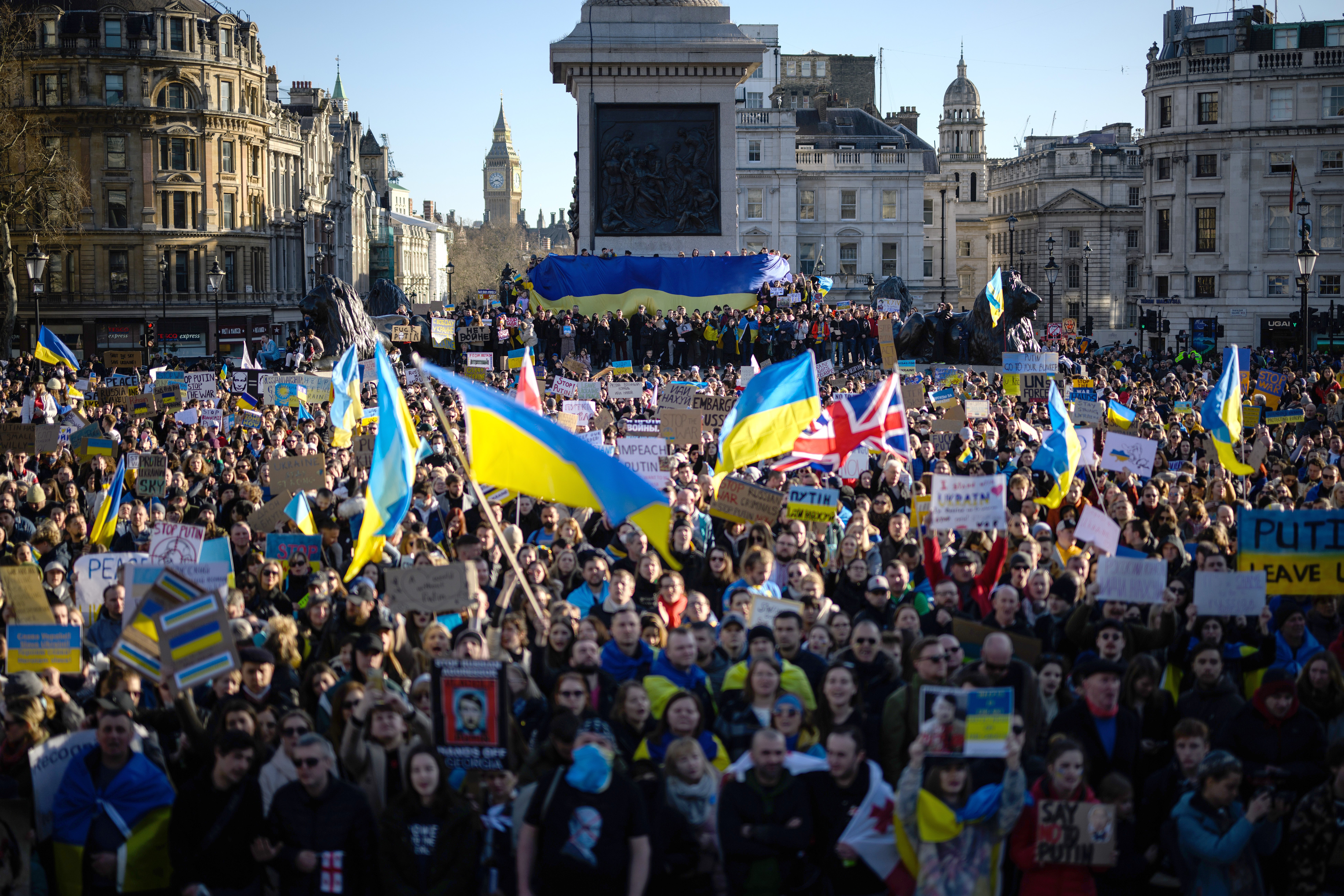Double-glazed windows could affect whether protests are stopped for being too noisy, Home Office says
Document addressing ‘common misconceptions’ about controversial bill gives examples of how it may work

Your support helps us to tell the story
From reproductive rights to climate change to Big Tech, The Independent is on the ground when the story is developing. Whether it's investigating the financials of Elon Musk's pro-Trump PAC or producing our latest documentary, 'The A Word', which shines a light on the American women fighting for reproductive rights, we know how important it is to parse out the facts from the messaging.
At such a critical moment in US history, we need reporters on the ground. Your donation allows us to keep sending journalists to speak to both sides of the story.
The Independent is trusted by Americans across the entire political spectrum. And unlike many other quality news outlets, we choose not to lock Americans out of our reporting and analysis with paywalls. We believe quality journalism should be available to everyone, paid for by those who can afford it.
Your support makes all the difference.Double-glazed windows could affect whether protests are stopped for being too noisy under new laws, the government has said.
A document published by the Home Office addressing what it calls “common misconceptions” around its plans gave a series of example scenarios.
It said the Police, Crime, Sentencing and Courts (PCSC) Bill would give police the power to restrict “unjustifiably” noisy protests.
“In recent years we have seen some protesters use egregious noise not as a method of legitimately expressing themselves, but to antagonise and disrupt others from the enjoyment of their own liberties and rights,” added the document, which was published on Thursday.
The Home Office said that police officers deciding whether to impose conditions based on noise will have to take into account a range of factors including who is affected, and if they are vulnerable, how long for and the human rights of protesters and those affected.
“A noisy protest outside an office with double glazing may not meet the threshold, but a protest creating the same amount of noise outside a care home for elderly people, a small GP surgery, or small street-level businesses might, given the level of disruption likely to be caused by the protest,” the document added.
“A noisy protest in a town centre may not meet the threshold, but a protest creating the same amount of noise outside a school might.”
It was published amid a protracted battle over the laws between the House of Commons and House of Lords.
Peers have repeatedly voted down powers to restrict protests on the basis of noise, only for MPs to re-insert them and continue the ongoing “ping-pong” process.
The most recent government defeat came on Thursday afternoon, when Conservative peer Lord Cormack called the move “preposterous” and the House of Commons was urged to think again.
Labour peer Lord Coaker said that when some peers first heard of the double-glazing proposition, they thought it “could not be true”.
“I had to read it a few times,” he told the House of Lords. “But it is such a serious point: this is what we are asking the police to use. In demonstrations in future, the police will be asked to consider whether a demonstration is too noisy on the basis of the number of houses that have double glazing. Unbelievable.”
Lord Coaker called the legislation “ridiculous” and said the noise proposals were “unworkable, ill-defined, illogical and will not work”.
The Independent previously revealed that policing bodies had not requested powers to impose conditions based on noise, and there are concerns about the complexity of decisions.
The Home Office document said the provision would only kick in for “unjustifiably noisy protests that cause harm to others or prevent an organisation from operating”, and that the threshold was “appropriately high”.
Chief constables will be responsible for decisions on upcoming protests, whereas for ongoing demonstrations it will be the most senior officer at the scene.
The Home Office also defended other planned protest laws, saying they do not amount to a new protest “ban” and that freedom of expression will be “unaffected”.
“These measures will balance the rights of protesters with the rights of others to go about their business unhindered,” the document said. “They will achieve this by enabling the police to better manage highly disruptive protests. The highly disruptive tactics used by some protesters cause a disproportionate impact on the surrounding communities and are a drain on public funds.”
The PCSC Bill is one of several pieces of legislation that have sparked significant human rights concerns in the UK.
The Law Society has made official submissions to the United Nations raising fears over proposals to replace the Human Rights Act and criminalise refugees, and saying they “threaten the rule of law”.
A document sent to the UN Human Rights Council Universal Periodic Review, and seen by The Independent, said: “The UK government is currently undertaking a series of legislative reforms with constitutional significance.
“This includes plans to reform the Human Rights Act, changes to the system of judicial review in the Judicial Review and Courts Bill, and changes to the refugee and asylum system in the Nationality and Borders Bill.
“We believe that these reforms threaten the rule of law by reducing the accountability of government and access to justice. If fully enacted, these reforms would alter the landscape of human rights protections in the UK by restricting the ability to enforce protections. They would also alter the UK’s relationship with its international obligations, including under UN human rights conventions.”



Join our commenting forum
Join thought-provoking conversations, follow other Independent readers and see their replies
Comments